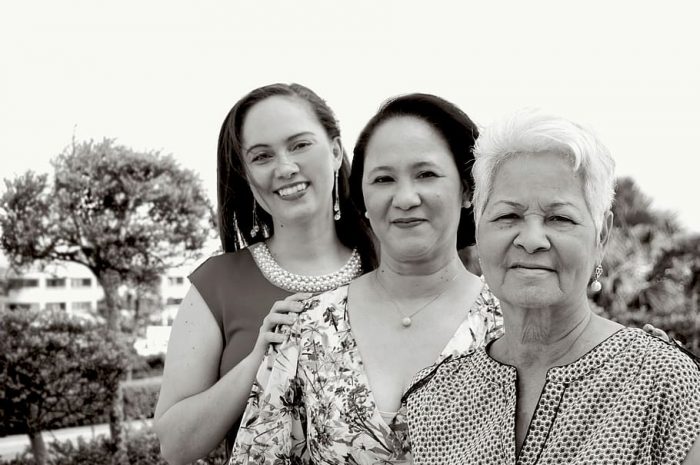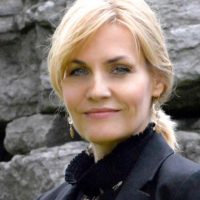When you write a book, a memoir in particular, you’re not just telling your story.
Quite often, you’re touching on the lives of other people’s stories who’ve played a role in it.
If you’ve ever thought about writing a memoir, it’s a reality you’ll need to face and come to terms with. It might be your story, but telling it could reveal secrets that others would prefer to be left unsaid. How much jurisdiction or truthful leeway are you willing to give up in the name of keeping the peace?
It’s not an easy position to be in. Do you ask for permission before writing your book or do you ask for forgiveness later, once it’s done? I remember how my clarity set in when I wrote my book.
I was sitting in a restaurant with my mom. It was her birthday and I’d just started writing my book. I was a month or so into the process. I just knew our conversation was going to be a difficult one because it was almost impossible to write about my history without implicating hers.
But I hadn’t anticipated it going like this.
“So, you must be really busy writing your book, you’ve been very quiet lately.”
That was my mom’s opening statement following our last conversation, two months ago, when I announced I was going to write a book. That conversation essentially ended like this—“Great. Just don’t write about me.” Nevertheless, I was thankful for the “in,” so I jumped on it.
“I’ve been wrapped up in research and I can’t seem to shake the idea that we’re all destined to repeat. I think it might even be the name of my book. This unhealthy generational pattern that I’m tracing pretty much has us putting our relationships with men before everything else in our lives…even our kids. Me. You. Grandma. I actually kind of understand the logic though. It’s like we’re being ‘selfishly inclusive’…if we can be happy, our kids will be happy too, so what’s so wrong with pursuing that?”
Mom nodded her head in agreement, then she shrugged her shoulders as if to say, “Exactly.”
I continued on, though. “It’s just that…the thinking, or rather non-thinking, is so flawed! We’ve placed all of our happiness in someone else’s basket rather than our own and then we’re devastated, ripped up, and gutted when these men, emotionally undependable or otherwise, inevitably disappoint us and it doesn’t work out. Somehow, we’ve made ourselves the victim in a situation we more or less created by abdicating choice.”
My mom, forever the conversationalist, engages, “It’s even worse than that. My grandmother, your great-grandmother, gave grandma away because of a man.”
What? Excuse me?
I didn’t think I’d heard that right and asked her to repeat it.
My internal dialogue was going crazy! I felt my heart sink. All at once, I felt overwhelmed…defeated. As though I’d instantly realized that this wound was our legacy and ran way too deep for me to fix in one lifetime.
There might have been chaos raging inside me but I calmly responded, “What do you mean, ‘she gave grandma away?’”
Mom explained, “When Grandma’s dad died, your great-grandma became a widowed mother of three girls during a time when women stayed home and the men provided for the family. There was a man who was willing to marry your great-grandma and take care of her but only if she gave your grandmother away to be raised elsewhere. He just didn’t like her. So, your great-grandma made arrangements for her to be sent away. I only found out when Grandma was in the hospital before she died.”
I sat there stunned. That can’t be right. Hollywood images of mothers having to choose between their sons and their daughters during the Holocaust ran briefly through my mind.
It was incomprehensible to me. The enormity of having to make such a decision and the resulting lifelong impact on the child—my grandmother—the woman who baked me donuts and cinnamon rolls and who allowed me to lie under the glass table while she covered it with copious amounts of perogies; the woman who was once a beauty queen with aspirations of owning her own beauty salon; a woman who loved to laugh and dance and play the harmonica, watch her soaps, and hear news from the people she loved most.
It dawned on me then, other than that, I knew nothing substantial about her. Not her feelings, her emotions, her thoughts, her pain, or her grief—neither as a woman or as a child.
Did she hurt?
Did she cry?
Did she love?
Did she laugh?
Did she know passion?
Did she make mistakes?
Did she have regrets?
Would she do her life all over again, if given a chance?
In that moment, the word “grandma” disappeared. The past became the present and she—the woman—became very much alive. I could imagine.
My heart broke under the weight of what had to be one of my grandmother’s and my great-grandmother’s most shame-filled and painful life experiences.
You’re not worthy. You’re not wanted. You don’t belong. You’re disposable. You have no value.
You have no choice.
These were the same negative narratives that welled up inside me and had no merit but continued to unconsciously rule me and my relationships.
If I had been concerned about how my mom was going to feel about me sharing the details of my life intertwined with hers in a book, I wasn’t anymore. All I remember thinking, without any knowledge of epigenetics at that time, was that these secrets die inside of us, but their energetic legacy lives on inside the cells of our future…our children. We need to heal these wounds, not hide them.
I had no choice but to challenge these ancestral threads. Expose them for what they were: real, raw, vulnerable, human. And make them visible so the shame and insidious, patriarchal cycle could stop here.
We’re all fighting ghosts, it seems, and all we’re really armed with is the knowledge of our own mistakes and the reflection of the lives we’ve left behind. The emotional wounds of our loved ones are long gone and forgotten, burned or buried in the hearts and minds of their mortal flesh.
Yet, a part of me can’t help but wonder, now that this awareness has flooded me with all this light, if the past, the present, and the future really are somehow one; that me, my mom, my grandmother, my great-grandmother, my daughter…we’re all somehow the same.
If we raised my ancestors’ bones from the ground or resurrected them from the ashes, would we be able to hear the echoes of their joy and laughter as they rose up, encircling us in protective rapture? And would we see the pain of their sorrow etched in their skeletal remains, decrypting our futures from the meaningful lessons of their past? Now that we can see, now that we’re awake, now that we’re actually listening? Or would we continue to lower our eyes in condemnation, blinded by the world’s judgement and ignorance in response to their shameful truths…our shameful truths? Would we turn and look away?
In other words, would I have reached awareness sooner, righted my path sooner, made different choices sooner, thought first before acting sooner, stopped beating up on myself sooner, or forgiven myself sooner if my ancestors—who unknowingly held the key—had found the courage to share their lessons learned?
Maybe that’s why we’re here at this juncture on our journey, contemplating our books, and concerned about the impacts they’ll have on the people who are important to us in our lives. And maybe that’s also why our ancestors never shared.
They never discovered the wisdom in their lessons or the meaning beyond their heartache—but yet, here we are, believing on some level that we have.
When we find that meaning—when that meaning is revealed—there’s healing and an unspoken obligation to share it for the betterment of humanity. We can feel it. We can’t deny its call, even if it’s just to tip the scale slightly forward within the expanse and ripple of our small circle and lives.
For me, it was no longer a question of seeking permission or asking for forgiveness.
It was my duty. It was my obligation.
I somehow sensed that my mom knew my book was going to be written, not only for my sake or the sake of my children but in some way, for her sake too. It was the beginning of our healing. It was the outing of our wounds that had once been buried alive so they could finally be given the air to breathe and mend.
So, the answer to the question, “Do you seek permission now or ask for forgiveness later?” when writing your memoir truly remains yours.
The only insight that I can offer now is to reflect on the legacy you hope to leave behind, the perceptions you’d like to challenge, and the healing your story might bring to others, when the sound of your voice is forgotten and the echo of your words is all that’s left to linger on.
Now, go.
Share your message.
I see you, and within every single one of you is a story that’s worthwhile.











Read 2 comments and reply